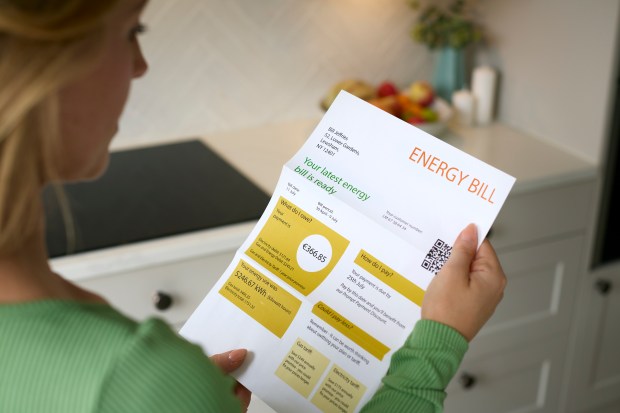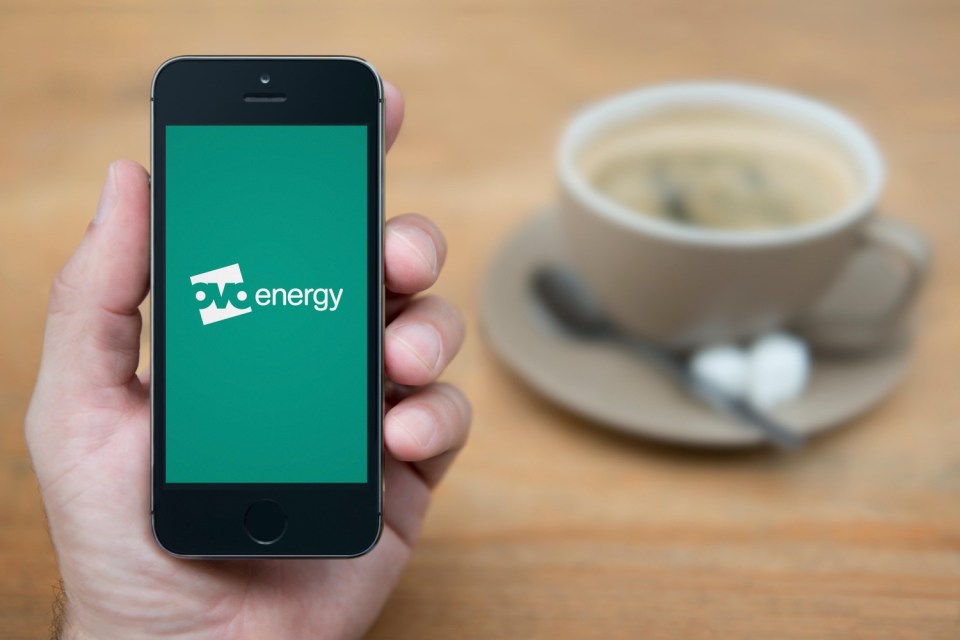FAMILIES can now receive a cut of £56million in energy bill support from a ‘Big Six’ supplier.
From today, OVO Energy is handing out free electric blankets as one of its ways to help customers with rising energy bills.
The supplier runs the extra support service for users all year round, but is now increasing the amount of aid it’s giving out ahead of the winter months.
Since 2022, OVO has given £190million in aid, including heated blankets, smart sockets, and efficiency kits, helping 42,000 customers last year.
The latest £56million package includes free energy-saving products and direct financial support.
And it’s not just electric blankets that you could bag for free.
read more on energy bills
OVO is also giving away mattress toppers and home efficiency kits to struggling households as part of the scheme.
Customers could also receive a wide range of energy-saving measures installed through ECO4 – from loft insulation to a new boiler, or even high-end tech like heat pumps.
Eligible customers could get a whole package installed, all for free.
Financial support including Direct Debit reductions, emergency credit top-ups, and extended repayment plans are also being offered.
To check your entitlement, visit ovoenergy.com/extra-support.
Ovo is separately campaigning for the introduction of a social tariff to protect vulnerable customers from high energy prices and combat fuel poverty across the UK.
David Buttress, chief executive of OVO, said: “We’re providing support to those who need it most by working together with our charity partners and committing our largest ever customer support package.”
“But this isn’t a long term solution.
“We need to make the energy system work better for everyone.
“That starts with targeted support in the form of a social tariff – no one can be, or no one needs to be left behind.”
What is the Energy Company Obligation scheme?
LOW-income and vulnerable families can get help improving the energy-efficiency of their homes through the Energy Company Obligation (ECO) scheme.
Under the ECO scheme, suppliers have a legal obligation to implement energy-saving measures in your home if you’re experiencing fuel poverty.
Help is offered on a case-by-case basis, but it can mean having a new boiler fitted, or loft or cavity wall insulation put in, often for free.
The cost of buying a new boiler and install is around £2,500, while loft insulation costs around £725 to install and cavity wall insulation in a mid-terrace house will set you back £1,800, according to Checkatrade.
Measures can also include the installation of heat pumps, smart thermostats and even solar panels.
These government schemes target low-income, vulnerable, and fuel-poor homes and can significantly reduce heating bills by up to £485 annually.
The ECO first launched in January 2013 and has been extended four times.
ECO4 applies to any help issued between April 1, 2022, and covers a four-year period until March 31, 2026.
You only qualify for the ECO under certain circumstances, for example if you claim certain benefits and live in private housing.
The list of benefits that could qualify you for the scheme is:
- Child tax credit
- Working tax credit
- Universal Credit
- Pension credit
- Income support
- income-based Jobseeker’s allowance (JSA)
- income-related employment and support allowance (ESA)
- Child benefit
- Housing benefit
You could also be eligible if you living in social housing.
In addition to this, households also need to be living in properties with an energy efficiency rating of D-G if they own it, or E-G if they are renting from a private landlord.
To check you’re eligible and apply, you’ll need to contact your energy supplier.
What other grants are available?
There are several other ways households can boost their home’s energy efficiency and save money through a variety of grants.
From insulation and boiler upgrades to modifications for disabled residents, financial assistance can cover a substantial portion of your home improvement costs.
Some grants may even cover up to £50,000 worth of home improvements.
Great British insulation scheme – £1,000s
You can get help insulating your home through the Government’s Great British Insulation Scheme (GBIS) if you’re not eligible under the ECO scheme.
GBIS is open to an extra 400,000 households in council tax bands A to E across England, Wales and Scotland who might not be claiming benefits.
To qualify, you must have an energy performance certificate rating of D or lower.
You could be in line for essential upgrades to your home, including roof, loft or cavity wall insulation – which could cut your annual energy bill by £100s.
Check whether you meet the eligibility criteria by visiting gov.uk/apply-great-british-insulation-scheme.
Boiler upgrade scheme – £7,500
Through the boiler upgrade scheme, you could get a grant to cover part of the cost of replacing fossil fuel heating systems with a heat pump or biomass boiler.
You can get one grant per property, towards help with the following:
- £7,500 towards an air source heat pump
- £7,500 towards a ground source heat pump (including water source heat pumps and those on shared ground loops)
- £5,000 towards a biomass boiler
To qualify for this scheme you must own the property you are looking to upgrade.
You must find an MCS-certified installer to claim the grant on your behalf.
MCS is the certification scheme for energy-efficiency product installers.
You can find the nearest ones to you by visiting www.mcscertified.com/find-an-installer, but it is worth shopping for a few quotes.
Home upgrade grant – £1,000s
The home upgrade grant provides funding for various energy efficiency measures for homes that are not connected to the gas grid, often in rural or semi-rural areas.
To be eligible, you must own and live in the property you’re applying for and not use a mains gas boiler as your home’s main heating system.
You’ll also need an performance certificate (EPC) rating of D, E, F or G – if you do not know your home’s EPC you can find it out when you apply.
You’ll usually need to have a household income of £36,000 a year or less.
If you’re eligible, your local council will arrange a home survey to see how your home could be made more energy efficient.
They might suggest improvements like installing wall, loft and underfloor insulation, air source heat pumps, electric radiators
Find out more by visiting gov.uk/apply-home-upgrade-grant.
What energy bill help is available?

There’s a number of different ways to get help paying your energy bills if you’re struggling to get by.
If you fall into debt, you can always approach your supplier to see if they can put you on a repayment plan before putting you on a prepayment meter.
This involves paying off what you owe in instalments over a set period.
If your supplier offers you a repayment plan you don’t think you can afford, speak to them again to see if you can negotiate a better deal.
Several energy firms have schemes available to customers struggling to cover their bills.
But eligibility criteria vary depending on the supplier and the amount you can get depends on your financial circumstances.
For example, British Gas or Scottish Gas customers struggling to pay their energy bills can get grants worth up to £2,000.
British Gas also offers help via its British Gas Energy Trust and Individuals Family Fund.
You don’t need to be a British Gas customer to apply for the second fund.
EDF, E.ON, Octopus Energy and Scottish Power all offer grants to struggling customers too.
Thousands of vulnerable households are missing out on extra help and protections by not signing up to the Priority Services Register (PSR).
The service helps support vulnerable households, such as those who are elderly or ill.
Some of the perks include being given advance warning of blackouts, free gas safety checks and extra support if you’re struggling.
Get in touch with your energy firm to see if you can apply.













